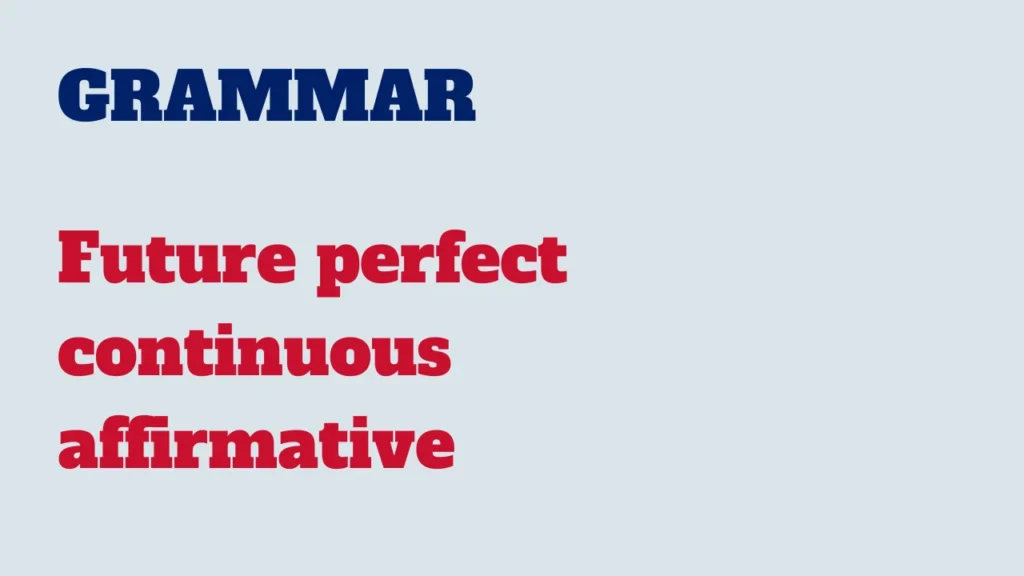In the future perfect continuous tense, affirmative sentences are created by using the auxiliary verb “will” after the subject, then “have been“, then the present participle (base form + –ing) of the main verb, and any additional information or complements.

Here’s how to construct future perfect continuous affirmative sentences:
Structure:
Subject + will + have been + Present participle of the main verb (base form + –ing) + Complements or additional information
Examples:
I will have been studying for five hours by the time you arrive.
At night, she will have been working on the project all day.
At three o’clock, we will have been waiting for the train for an hour.
By noon, they will have been playing soccer in the park for thirty minutes.
He will have been living in the city for ten years by next month.
Table: Future perfect continuous – affirmative
| SUBJECT PRONOUN | FUTURE PERFECT CONTINUOUS AFFIRMATIVE | EXAMPLES |
|---|---|---|
| I | will have been + present participle | I will have been working on this project for two hours. |
| You | will have been + present participle | You will have been studying Spanish for a long time. |
| He/She/It | will have been + present participle | She will have been practicing the piano all afternoon. |
| We | will have been + present participle | We will have been waiting for the train for two hours |
| You (plural) | will have been + present participle | You will have been exercising for fifteen minutes. |
| They | will have been + present participle | They will have been renovating their house for weeks. |
Usage of future perfect continuous – affirmative:
Expressing continuous action duration leading to a future point:
Used to convey the duration of a continuous action that will have been ongoing until a specified future point.
Example:
I will have been practicing the piano for two hours by the time my parents return.
Highlighting prolonged actions or efforts:
Used to emphasize actions or efforts that will have been continuing for an extended period by a certain future moment.
Example:
She will have been volunteering at the shelter for a year next week.
Discussing anticipated ongoing activities:
Can be employed to express expectations about ongoing activities that will have been taking place in the future.
Example:
By the end of the day, we will have been working on the project for ten hours.
A common mistake to avoid:
Avoid using the future perfect continuous tense with non-action verbs like to be, to seem, or to know. Instead, opt for the future perfect tense, formed with will + have + past participle, when referring to these verbs.
Incorrect: I will have been knowing Tom for a year by the end of the month.
Correct: I will have known Tom for a year by the end of the month.
Understanding how to form and use future perfect continuous affirmative sentences allows you to express the duration of ongoing actions leading up to a specific future moment. Practice constructing affirmative sentences in the future perfect continuous tense to enhance your language skills. Happy learning!



